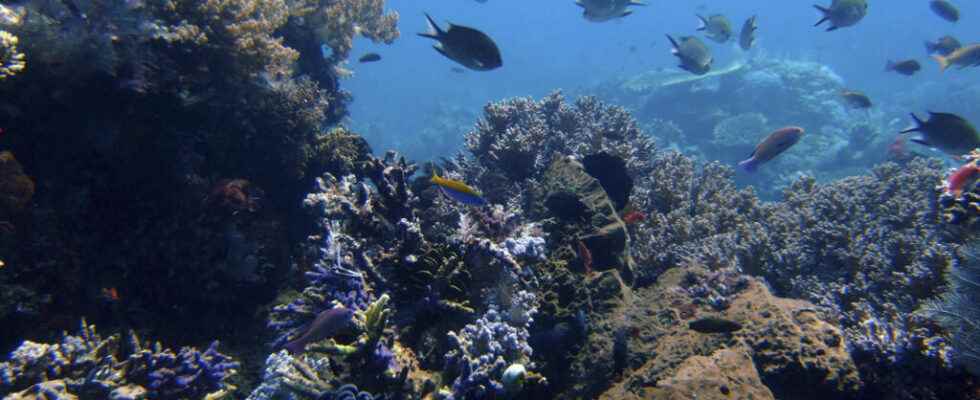For three days, players in the marine economy gather in Portugal to find new solutions for protecting the oceans. The conference will focus on the impacts of fishing, transport and maritime tourism, but also on marine renewable energies and blue finance.
Climate change, loss of biodiversity, pollution: the challenges of protecting the oceans are multiple. In Lisbon this year, policy makers, scientists, businesses and civil society will address the impacts of marine industries, including shipping, fisheries, aquaculture, energy and tourism.
Developing a blue, sustainable economy to reduce harmful practices and restore the health of the oceans to achieve the United Nations Sustainable Development Goals (SDGs) 2030 is indeed at the heart of this summit. Discussions will therefore take place between solution providers and investors.
For Anne-Sophie Roux, representative in France of the Sustainable Ocean Alliance, it is important that the private sector takes up the subject of the preservation of the seas and oceans in order to diversify the means of financing the solutions. Marine areas are protected in the texts, for example. But there aren’t really any mechanisms in place. The same goes for the decarbonization of maritime transport. How do we fund it?
► Read also : One Ocean Summit: NGOs remain unsatisfied and denounce “blue washing”
Park at blue washing !
Environmental organizations, such as the Sustainable Ocean Alliance, warn of the risks of exaggerating the eco-responsible concerns of companies present in Lisbon. Among the sponsors of this conference on the economy of the sea, we find the Italian-Swiss shipowner MSC. THE blue washing just like the greenwashing have become highly developed marketing techniques.
On carbon taxation in particular, large groups have prided themselves on being eco-responsible. The Kyoto Protocol had in fact put in place a mechanism which allowed, if the operator reduced his CO2 emissions, he could resell his right to emit unused CO2. But, very often, these carbon credits were empty, explains Anne-Sophie Roux. ” We talk a lot about ”Blue Carbon Credit”. In other words, assigning carbon credits to the restoration of marine ecosystems. Typically on this subject, we really have to take as an opportunity the fact of having seen that there were plenty of things that did not work. As a result, try to address the things that are wrong to make blue carbon credits that have the most impact possible, and without thinking that that will be the solution either. I think the scientific reports are pretty clear that it’s not technology, for example, that will solve all the problems… »
Economic discussions therefore during this World Ocean Summit in Lisbon while more political exchanges take place in parallel between the member states of the UN until March 3. Observers are counting on the momentum given by the historic agreement reached in Montreal at COP15 on biodiversity to sign a treaty to protect the high seas. The countries of the world have indeed committed in December 2022 to protect 30% of all land and oceans by 2030.
► Read also: Protecting the high seas: a treaty under discussion at the UN
